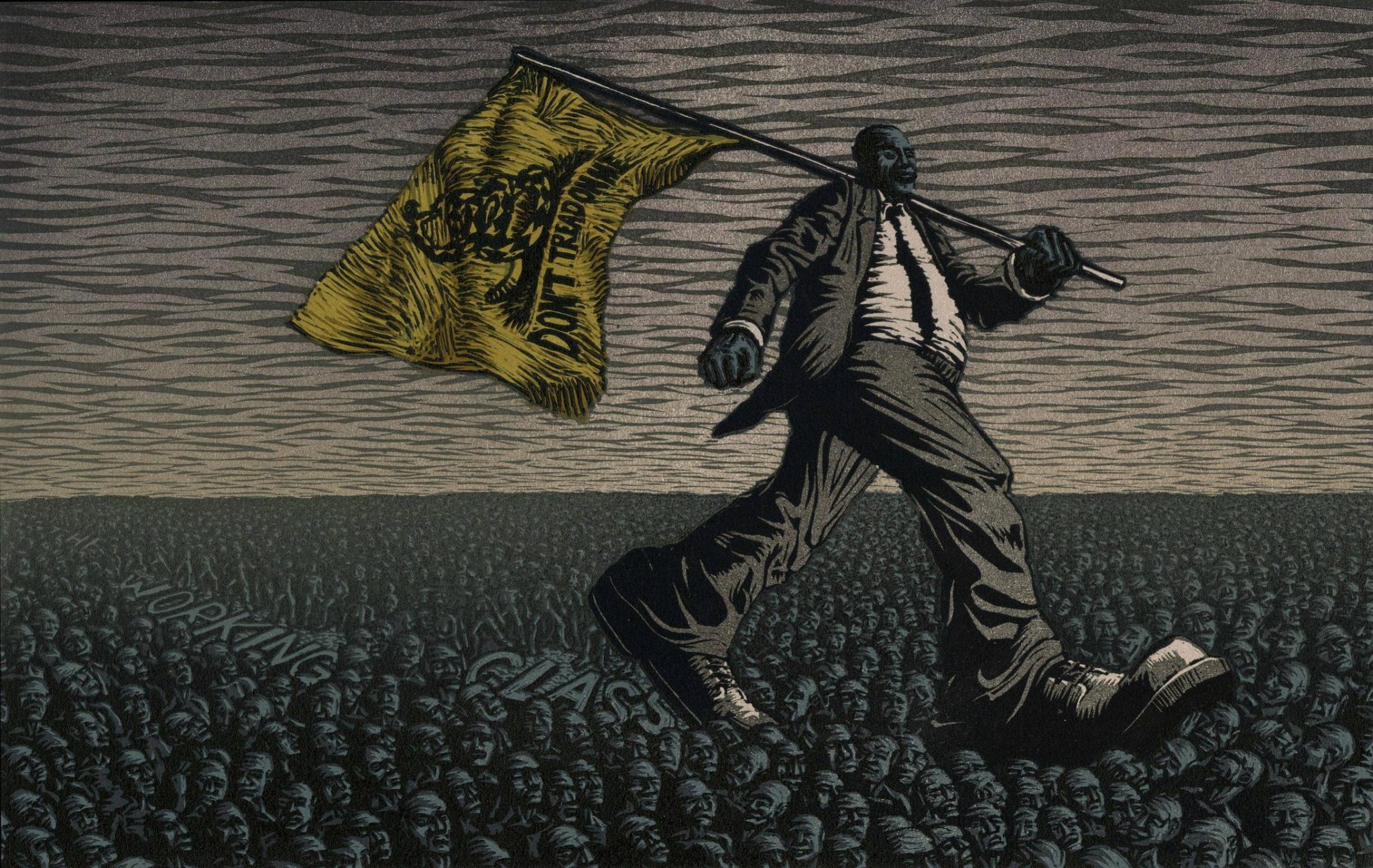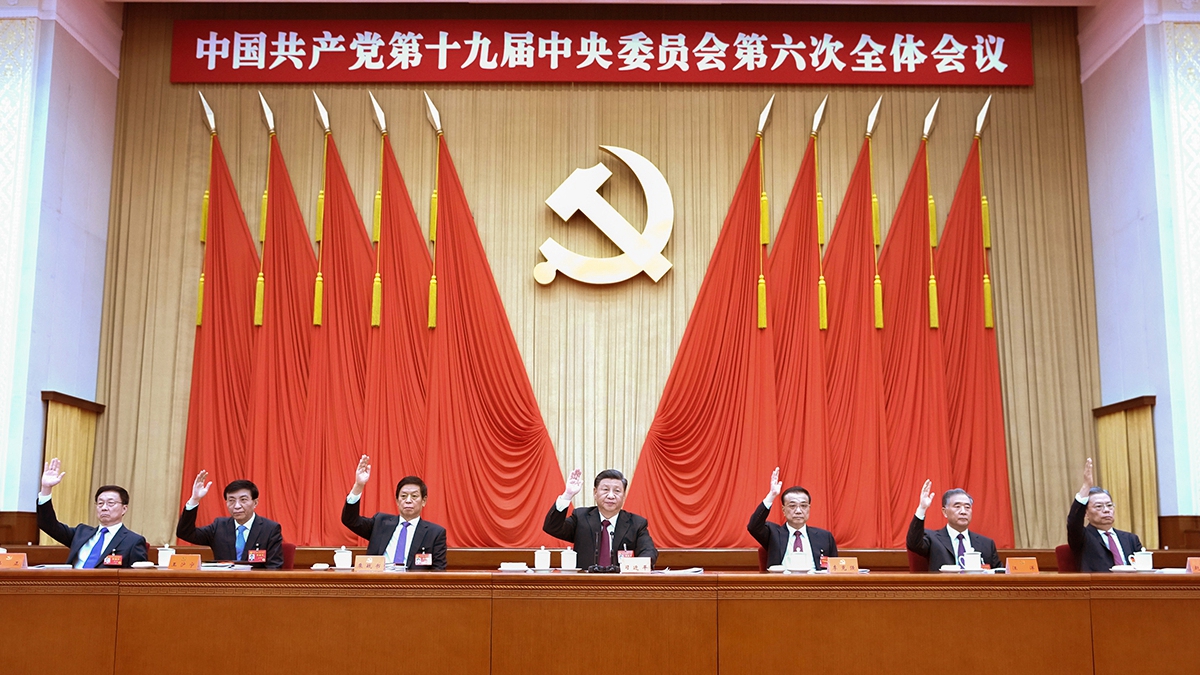Monopoly Capitalism In Crisis
As the Western capitalist system continues to expose its own ineptitude at leading an effective struggle against the Coronavirus pandemic, the worst economic crisis since the Great Depression is sinking its teeth deeper into the global economy. Severe disruptions in global supply chains are the main culprits for the economic woes of most industries, which can only be honestly blamed on the anarchy of market production and distribution.
Shortages of transport drivers in the US and UK have significantly contributed to food crises, as store shelves contradictorily remain bare while farmers destroy their unsaleable products. A strangulated supply of semiconductors, spawned by widespread Coronavirus cases in Southeast Asia, have forced Western factories producing automobiles and electronics to remain idle. Vaccine producers are even facing an acute shortage of supplies because of defective supply chains.
While it may seem as if the sorry state of the global economy equates to bad news for everyone, a select few are not only raking in super-profits – they are also the harbingers of the economic anarchy negatively affecting the lives of billions of people. They are called monopoly capitalists and they hide their misdeeds behind the short-sightedness of mainstream Western economists, as well as the veil of what the law considers “business as usual.”
The title of most-well-known-monopoly-capitalist could likely be bestowed upon casual space traveller and former Amazon CEO Jeff Bezos, whose company made billions and essentially perfected its monopolization of the online retail industry throughout the US’ pandemic lockdowns. But other lesser-known companies pervade throughout other sectors of the economy.
The roots of the above-mentioned driver shortage in the US extend as far back as the 1970’s, when deregulation sparked an industry-wide race to the bottom in terms of costs and, consequently, wages, as well as an essential monopolization of the industry under Federal Express (FedEx) and the United Parcel Service (UPS). As a result, the field of transportation gradually hemorrhaged people willing to do hard work for low wages – with no national economic plan that would have otherwise mobilized the state to step in on behalf of workers.
In the sphere of vaccine production, the current supply chain bottleneck can be directly attributed to monopolization within the Single Use Bioprocessing Equipment industry during the past 15 years. Thanks to their monopoly position, the four dominant companies permitted by the US Federal Trade Commission and European Union competition authorities (Merck, Danaher, Sartorius, and Thermo Fisher) have claimed essential medical equipment as their own intellectual property through patents. The practice of blocking potential competitors from entering the industry combined with resistance to the standardization of these companies’ equipment, meaning customers have little other choice but to continue buying from the initial seller, comprise the key factors contributing to supply chain issues connected to vaccine supplies.
Energy at the Core
However, the most devastating and all-encompassing global crisis right now, with large parts of the most powerful American monopoly capital at stake, is that of energy. Coal prices have soared 106% this year with a number of countries connected to the international markets, including China, facing massive blackouts due to shortages. Lebanon’s nation-wide electrical grid even went down for 24 hours.
On the other hand, the price of natural gas has skyrocketed 600% since the beginning of 2021, primarily due to the same supply-chain bottlenecks that have formed in other industries under the international monopoly capitalist system. The primary specificity of the natural gas industry is that the majority of other economic sectors in Western countries, especially those aggressively pursuing transitions to green energy, are highly dependent on it to function properly – most notably food production.
For many years, the European Union (EU) has imported the vast majority of its natural gas, with Russia being its largest importer. Moscow has maintained a flawless track-record of fulfilling contracts throughout its business dealings with the EU, and yet Washington has relentlessly insisted that Europe begin purchasing large quantities of more expensive American Liquefied Natural Gas (LNG).
Now that the price of natural gas has reached crisis-level, American monopoly capitalists in the energy industry are trying to sink their claws into European markets by exploiting the chaos. In order to compensate for their competitive weakness, they have mobilized both politicians bought-out along the campaign trail and talking heads of America’s corporate media to lamely scapegoat Russia. Their narrative blames Moscow for the astronomical rise in natural gas prices and claims that Europe is being held at economic gunpoint to fast-track the approval of Russia’s newly completed Nord Stream 2 gas pipeline – a consequence of the Russians’ alleged refusal to send more fuel to Europe.
But the facts paint a different picture. Russia’s state oil and gas company, Gazprom, has said it does not want to pump more gas through its pipeline in Ukraine – a country which is hostile to Russia and demands tolls for gas transport. Gazprom has also repeatedly assured the EU that it is ready to significantly increase natural gas supplies to the continent via the cheaper Nord Stream 2 alternative. The problem is that Europe’s biggest economies – Germany, France, etc. – are, for undeclared reasons, not requesting new orders.
Considering the “free market” principles and “democratic values” the US claims to promote around the world, it should seem elementary for Western liberals that Brussels would buy gas from its neighbor at a lower price, instead of having it shipped across the Atlantic Ocean at a higher price, especially in a time of crisis, right?

Not Accepting New Members to the Monopoly Capitalist Club
Nope. In fact, Washington’s capitalist crusades have always been waged to establish one set of rules for the crusaders and another set of rules for the conquered. When the USSR was dissolved by opportunist politicians and “democracy” came to Russia 30 years ago, masses of Russians imagined a dreamy future of unrestricted travel, friendly foreign relations with the United States, and a standard of living generally portrayed in Hollywood movies.
Instead, what they received was a new capitalist elite content with selling the nation’s industrial capital, built up over decades in the USSR, to the West for pennies on the dollar, which quickly put a damper on the Russian liberal dream of the good Western-style life. Foreign relations with Washington were great, until Russian President Vladimir Putin came to power, put an end to the Western monopoly capitalists’ profits made through plunder, and began asserting Russia’s national sovereignty in the face of Western aggression. As for travelling abroad, most Russians cannot afford to do so even today, in large part due to the progressive devaluation of the ruble on the international financial markets.
In light of Washington’s most recent political moves to keep Russia excluded from the international club of monopoly capitalists, Putin announced that the West’s capitalist model is not working at this year’s assembly of the Valdai Discussion Club – a Moscow-based discussion forum usually featuring a keynote speech by Russia’s president. This part of his speech was mainly an indication that it is becoming painfully clear to anyone paying attention; the contemporary capitalist system has only two types of actors – those who take from those who are forced to give and those who give to those who use force to take.
Under Putin’s administration, though, Russia has pursued a middle-ground position of equal partnership with the West, rejecting the overtly-ideological position taken up in its soviet past. The Russian president’s speech at the Valdai Discussion Club even included an outright denunciation of the Bolsheviks, as well as their “dogma of Marxism.” However, as disappointing as it might be for the Russian president, Bolshevik leader Vladimir Lenin’s work Imperialism: the Highest Stage of Capitalism is as relevant now as it was in the early 20th century.

Over 100 years ago, Lenin described our contemporary monopoly capitalist system in its embryonic form, under the historical conditions of World War I:
“Capitalism has grown into a world system of colonial oppression and of the financial strangulation of the overwhelming majority of the population of the world by a handful of “advanced” countries. And this “booty” is shared between two or three powerful world plunderers armed to the teeth (America, Great Britain, Japan), who are drawing the whole world into their war over the division of their booty.” – Vladimir Lenin, Imperialism: The Highest Stage of Capitalism
The end he proposed was of course socialist revolution.
Whatever the solution, the main shortcoming of Russia’s current leadership is a refusal to admit that the West will never voluntarily accept it as an equal partner. A refusal to understand that there is no middle-ground for the monopoly capitalists – one either forces them into a position of mutual respect or one becomes an object of their exploitation.
Featured in Revolution Report №9 – October 2021
Originally published on The Revolution Report and uwidata.com.















